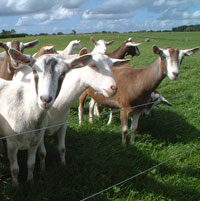Emerging diseases: Peste de Petits Ruminants

The outbreak of foot-and-mouth disease in 2001 will be firmly fixed in the minds of many farmers. But, with the threat of new exotic diseases coming into the UK, it’s vital farmers remain vigilant. Sarah Trickett speaks to Chris Oura, of the Institute of Animal Health about the dangers posed by Peste de Petits Ruminants (PPR).
The movement of animals could also be responsible for the arrival of PPR into Europe, with cases already being reported in Turkey. “This is something we are at risk of this time by transmission from animal to animal only rather than by meat products,” says Dr Oura.
The devastation this viral disease can have has been evident in Morocco, with 360 outbreaks of PPR in goats and sheep over a six month period, indicating how rapidly the disease can spread through a naïve population.
“PPR is like the rinderpest of small ruminants (goats and sheep) causing up to 80% mortality. It is not as serious as African Swine Fever because there is a good live vaccine for it. But, because it is easily transmissible from animal to animal it is something we should keep on top of as it is nasty to get rid of.”
After an incubation period of two to six days, symptoms usually start appearing, with animals developing a nasal discharge and fever, but otherwise appearing normal. Within hours animals can become severely depressed, sneeze frequently and lick lips constantly.
